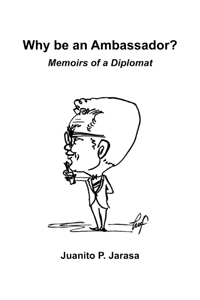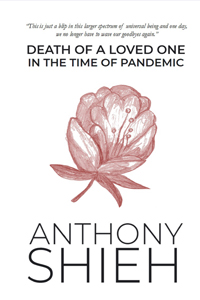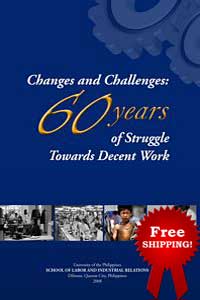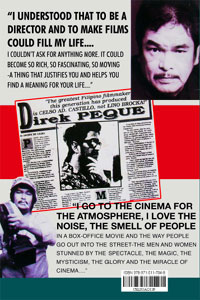- Why be an Ambassador
- Juanito Jarasa
- Publisher: Central Book Supply, Inc.
- ISBN: 978-971-691-800-7
- No. of Pages: 274
- Size: 6 x 9
- Edition: 2012 Edition
Description:
The title of this book is bound to arouse curiosity. Actually, it was the title of one column of the publisher of a Manila business newspaper who visited Budapest and Rome in 1991. In that particular column, he wrote about the loneliness and travails of Filipino diplomats whom he met in those places. I was one of them. Gaby Mañalac, the publisher, even described my then two year old Embassy as “something of a lost command.” He was probably intrigued by our coping mechanism.
I hope that this little book will somehow provide answers to Mañalac’s vexing question. I would be less than candid if I did not say that I also wish to contribute to the rather small number of publications about our diplomatic service. I feel that my recollections could elicit encouragement for those eyeing a career in diplomacy and give useful insights to those already in the service.
There is reticence on the part of Filipino diplomats to put their experiences in writing. This is understandable. I, for one, was initially reluctant. When I called on U.S. Ambassador Stephen Bosworth, who was previously the American envoy in Manila, shortly after assuming my post in Seoul in 1999, he told me I should write my memoirs. He said he read my curriculum vitae before I came and was impressed by it. In reply, I expressed the fear that nobody might be interested to read the account of a diplomat from a developing country. I added that I was not able to make copious notes on my various assignments. It was like telling him that he was making me more fortunate than I deserve. (Bosworth is now Pres. Barack Obama’s special envoy to North Korea.)
I hope that this little book will somehow provide answers to Mañalac’s vexing question. I would be less than candid if I did not say that I also wish to contribute to the rather small number of publications about our diplomatic service. I feel that my recollections could elicit










